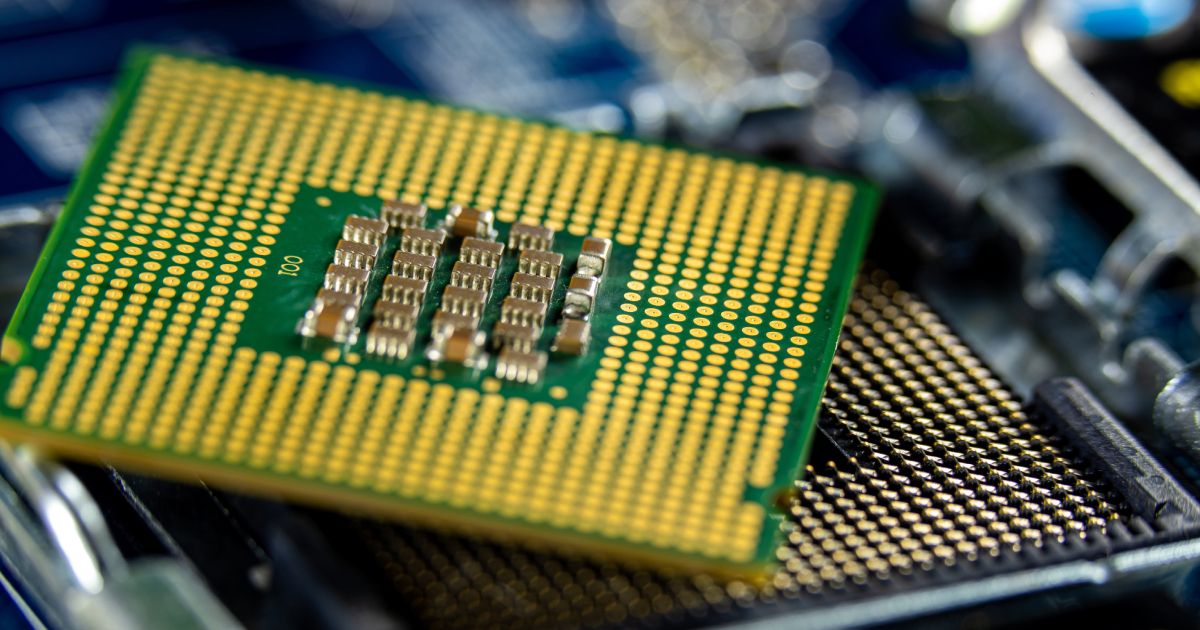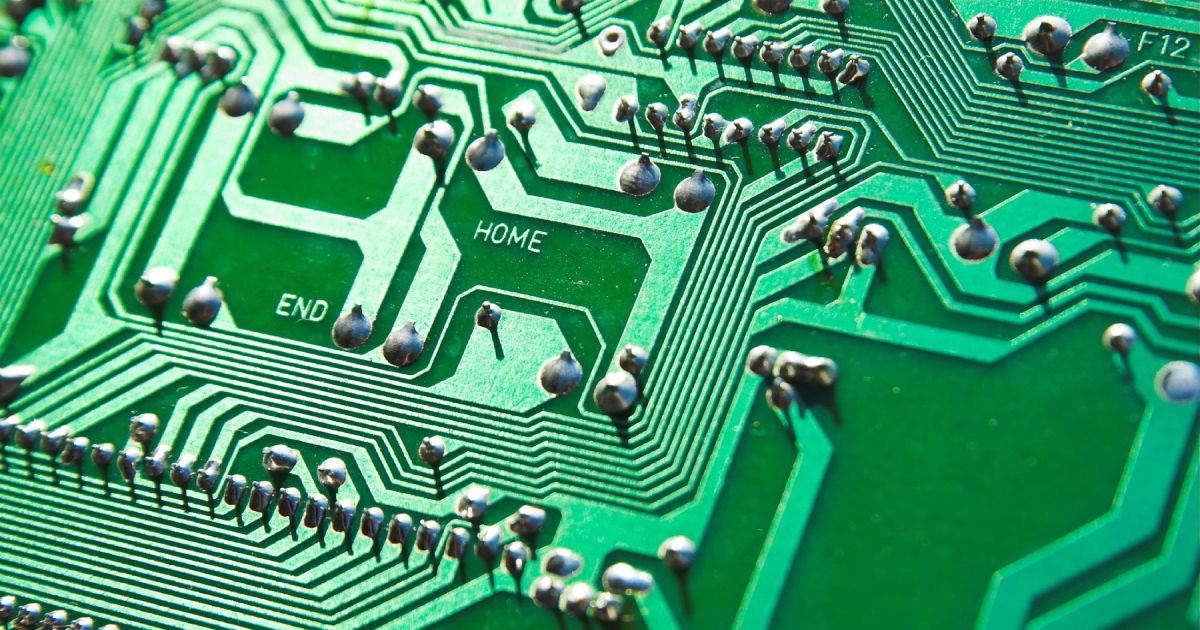The Future of the Semiconductor Industry

The semiconductor industry has been at the forefront of technological advancements, shaping the modern world as we know it. From smartphones and laptops to self-driving cars and artificial intelligence, semiconductors are the building blocks of nearly every electronic device. As we move into the future, the semiconductor industry is poised for significant transformation, driven by emerging technologies and increasing demand for advanced computing solutions.
In this article, we will explore the key trends and developments that are shaping the future of the semiconductor industry.
Advanced Process Technologies and Miniaturization

Advanced process technologies and miniaturization are at the forefront of the semiconductor industry's evolution. As electronic devices become more complex and demanding, semiconductor manufacturers are continuously pushing the boundaries of process technologies to achieve higher performance and energy efficiency. The industry has witnessed the development of smaller transistor sizes and advanced lithography techniques, enabling the production of more powerful and energy-efficient chips. With the advent of technologies like Extreme Ultraviolet Lithography (EUV), manufacturers like ASML and TSMC can now create circuits with smaller feature sizes, paving the way for the next generation of high-performance computing and mobile devices.
Miniaturization plays a crucial role in the semiconductor industry's growth, as it allows for the integration of more components into smaller form factors. This trend has led to the development of wearable devices, IoT sensors, and other smart devices that have become integral parts of modern life. Moreover, the concept of system-on-chip (SoC) integration has gained traction, where multiple functions and features are integrated onto a single semiconductor chip. This approach not only reduces the overall footprint of devices but also enhances their efficiency and functionality. As the demand for smaller, more powerful, and energy-efficient devices continues to rise, advanced process technologies and miniaturization will remain key drivers of innovation in the semiconductor industry.
AI and Machine Learning Applications

AI and machine learning applications are revolutionizing the semiconductor industry by enhancing efficiency, productivity, and innovation. These technologies are leveraged throughout the semiconductor manufacturing process, from design to production and testing. AI algorithms are employed in chip design to optimize performance, reduce power consumption, and predict potential design flaws, leading to faster development cycles and improved product quality. Machine learning is used in wafer fabrication to identify and address defects, improving yield rates and reducing manufacturing costs. Moreover, AI-powered predictive maintenance systems enable real-time monitoring of equipment, allowing manufacturers to anticipate maintenance needs and minimize downtime.
Beyond manufacturing, AI and machine learning are also transforming the way semiconductor devices are utilized. In data centers and cloud computing environments, AI accelerators and neural processing units (NPUs) are employed to handle the massive computational requirements of AI workloads efficiently. Additionally, AI is embedded in semiconductor chips themselves, enabling edge devices to process data locally and deliver faster and more intelligent responses. As the semiconductor industry continues to embrace AI and machine learning, we can expect groundbreaking advancements, making devices smarter, more capable, and more energy-efficient.
IoT and Connectivity

The Internet of Things (IoT) and connectivity are driving a major transformation in the semiconductor industry. As more devices and objects become interconnected, the demand for advanced semiconductor solutions has skyrocketed. IoT applications require a vast array of sensors, microcontrollers, and communication chips to enable seamless data exchange and real-time connectivity. To meet these evolving needs, semiconductor companies are investing heavily in the development of low-power, high-performance chips that can power a wide range of IoT devices, from smart home appliances and wearables to industrial sensors and autonomous vehicles. The ability of these semiconductor components to process and transmit data efficiently is pivotal in unlocking the full potential of IoT and enabling a more connected world.
Moreover, the growing adoption of 5G technology is set to revolutionize connectivity and expand the possibilities for the semiconductor industry. With 5G networks offering significantly faster and more reliable data transfer rates, there will be a surge in demand for advanced semiconductor chips capable of handling the increased data traffic and supporting the sophisticated features of 5G-enabled devices. Semiconductor companies are innovating to develop cutting-edge 5G chips that can power the next generation of smartphones, IoT devices, and other connected solutions. The integration of 5G technology into various industries, such as healthcare, automotive, and smart cities, will further drive the demand for advanced semiconductor solutions, fostering growth and innovation in the semiconductor industry.
Sustainability and Green Initiatives

In response to growing environmental concerns, sustainability and green initiatives have become a focal point in the semiconductor industry. As demand for electronic devices and chips continues to surge, semiconductor companies are increasingly adopting eco-friendly practices to minimize their carbon footprint and reduce environmental impact. One of the primary areas of focus is energy efficiency during the manufacturing process. Companies are investing in advanced fabrication technologies and equipment that consume less energy and produce fewer greenhouse gas emissions. Additionally, the industry is exploring renewable energy sources to power semiconductor fabs, such as solar and wind power, aiming to transition to a more sustainable energy mix.
Beyond manufacturing, semiconductor companies are actively working to develop greener products. This includes designing energy-efficient chips that consume less power and produce less heat, contributing to energy savings in end-use applications. Furthermore, recycling and reusing electronic waste have become essential parts of the industry's green initiatives. Companies are implementing effective e-waste management strategies to responsibly handle discarded devices and recover valuable materials for reuse. Embracing sustainability and green practices not only aligns semiconductor companies with global environmental goals but also boosts their reputation among eco-conscious consumers and investors.
Final Thoughts
The future of the semiconductor industry is marked by transformative technologies and applications that will shape the world in profound ways. Advanced process technologies, AI-driven innovations, IoT connectivity, and sustainable practices are among the key drivers propelling the industry forward.
As demand for high-performance chips continues to grow, semiconductor companies are at the forefront of driving technological progress, bringing us closer to a more interconnected, intelligent, and sustainable world.





